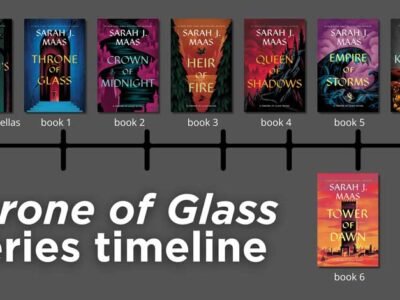Introduction: The Power of Precise Language
In the vast landscape of the English language, certain words become habitual, often used as a default when a more nuanced term might better convey meaning. ‘Interested’ is one such word, frequently employed to describe a state of engagement or curiosity.
While perfectly functional, relying solely on ‘interested’ can sometimes flatten the richness of expression. Exploring its synonyms allows writers and speakers to inject greater precision and vibrancy into their communication.
Why Move Beyond ‘Interested’?
Moving beyond a single, common descriptor like ‘interested’ is not merely about expanding vocabulary. It is about enhancing clarity, conveying subtle emotional states, and painting a more vivid picture for the audience.
Each synonym carries its own unique shade of meaning, reflecting different levels of engagement, types of curiosity, or degrees of personal connection. Understanding these distinctions empowers more impactful writing.
Understanding the Core Meaning of ‘Interested’
The fundamental essence of ‘interested’ lies in a state of having one’s attention or curiosity aroused by something. It implies a mental or emotional engagement, a desire to know or learn more.
This core meaning serves as a starting point, a baseline from which its various synonyms diverge, each emphasizing a particular facet of this general concept.
The Foundation: Curiosity and Engagement
At its heart, ‘interested’ suggests a natural human inclination towards inquiry and involvement. It can range from a fleeting moment of attention to a sustained period of focus.
This foundational understanding is crucial for discerning when a synonym is truly appropriate, ensuring that the chosen word accurately reflects the intended level and nature of engagement.
Exploring Synonyms by Nuance and Context
The English language offers a rich tapestry of words to replace ‘interested,’ each with its own specific connotations. Categorizing these synonyms by their subtle differences can help in selecting the most fitting term.
From casual attention to profound absorption, these alternatives allow for a more precise articulation of one’s mental state or reaction to a subject.
Expressing Mild Curiosity
For situations where the engagement is light or initial, words like ‘curious,’ ‘attentive,’ or ‘intrigued’ can be highly effective. They suggest a nascent desire to explore without implying deep commitment.
‘Curious’ highlights a desire to know or learn, while ‘attentive’ emphasizes focused observation. ‘Intrigued’ often implies a sense of mystery or fascination that piques one’s interest.
Conveying Deep Fascination
When the level of engagement is intense and captivating, stronger synonyms come into play. ‘Fascinated,’ ‘engrossed,’ ‘absorbed,’ or ‘captivated’ are excellent choices.
‘Fascinated’ denotes an intense attraction and interest, often to the point of being spellbound. ‘Engrossed’ and ‘absorbed’ suggest a complete mental immersion, where one’s attention is fully consumed.
Indicating Active Involvement
Sometimes, ‘interested’ implies more than just mental engagement; it suggests active participation or a stake in an outcome. In such cases, ‘involved,’ ‘concerned,’ or ‘engaged’ are more appropriate.
‘Involved’ directly points to participation or connection. ‘Concerned’ implies a personal stake or worry, while ‘engaged’ can mean both mentally occupied and actively participating.
Suggesting Personal Concern
When the interest stems from a personal connection or a sense of responsibility, words like ‘solicitous’ or ‘invested’ can be used. These terms carry a weight of personal care or commitment.
‘Solicitous’ conveys a caring and attentive interest, often accompanied by a degree of anxiety or concern for another’s well-being. ‘Invested’ suggests a personal commitment or emotional stake in something.
Choosing the Right Synonym: A Practical Guide
Selecting the perfect synonym requires careful consideration of the context, the intensity of the feeling, and the specific message one wishes to convey. It is an art that refines with practice.
By asking a few key questions about the situation, writers can navigate the options and choose the word that resonates most accurately with their intent.
Consider the Intensity
Is the interest mild and fleeting, or is it profound and all-consuming? The intensity of the feeling should guide the choice of synonym. A casual ‘curious’ differs greatly from a deep ‘fascinated.’
Matching the synonym’s intensity to the situation prevents overstatement or understatement, ensuring the message is received as intended.
Match the Context
Formal writing might call for words like ‘concerned’ or ‘involved,’ while a more informal setting could accommodate ‘keen’ or ‘into.’ The audience and purpose of the communication are vital factors.
Context also dictates whether the interest is intellectual, emotional, or practical, further narrowing down the suitable alternatives.
Avoid Redundancy
While exploring synonyms, it is important to avoid using multiple words that convey almost identical meanings in close proximity. This can make writing feel repetitive rather than rich.
Instead, aim for variety and precision, using each synonym to highlight a distinct aspect of the overall concept of ‘interest.’
Common Pitfalls and How to Avoid Them
Even with a clear understanding of synonyms, certain errors can detract from the effectiveness of one’s writing. Awareness of these common pitfalls can help in crafting more polished and professional text.
Careful proofreading and a critical eye are essential to ensure that the chosen words enhance, rather than detract from, the overall message.
Misusing Similar-Sounding Words
Some words, while appearing similar, carry entirely different meanings. For instance, confusing ‘disinterested’ (impartial) with ‘uninterested’ (bored) can significantly alter the intended message.
Always double-check the definitions of unfamiliar synonyms to ensure they align precisely with the desired meaning and context.
Overusing Complex Vocabulary
While expanding vocabulary is beneficial, the goal is clarity, not obfuscation. Overloading text with overly complex or obscure synonyms can make it difficult to read and understand.
Strive for a balance between sophisticated language and accessible communication, choosing the simplest accurate word whenever possible.
Conclusion: Elevating Your English Expression
Mastering the synonyms for ‘interested’ is a significant step towards elevating one’s English expression. It allows for greater precision, nuance, and impact in both written and spoken communication.
By thoughtfully selecting words that truly reflect the depth and nature of engagement, individuals can transform their language from merely functional to genuinely compelling. This journey enriches not only personal expression but also the understanding of those with whom one communicates.













